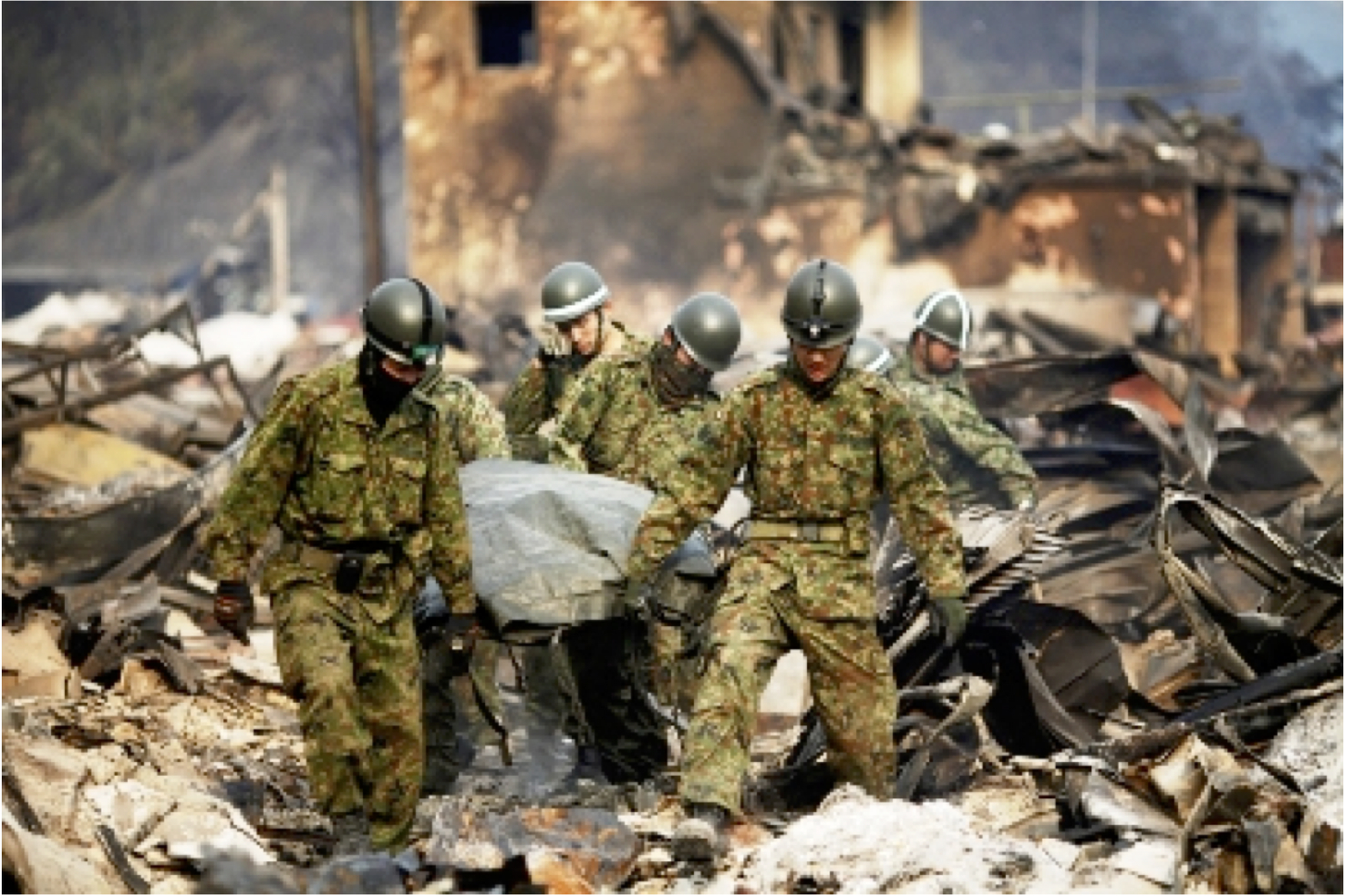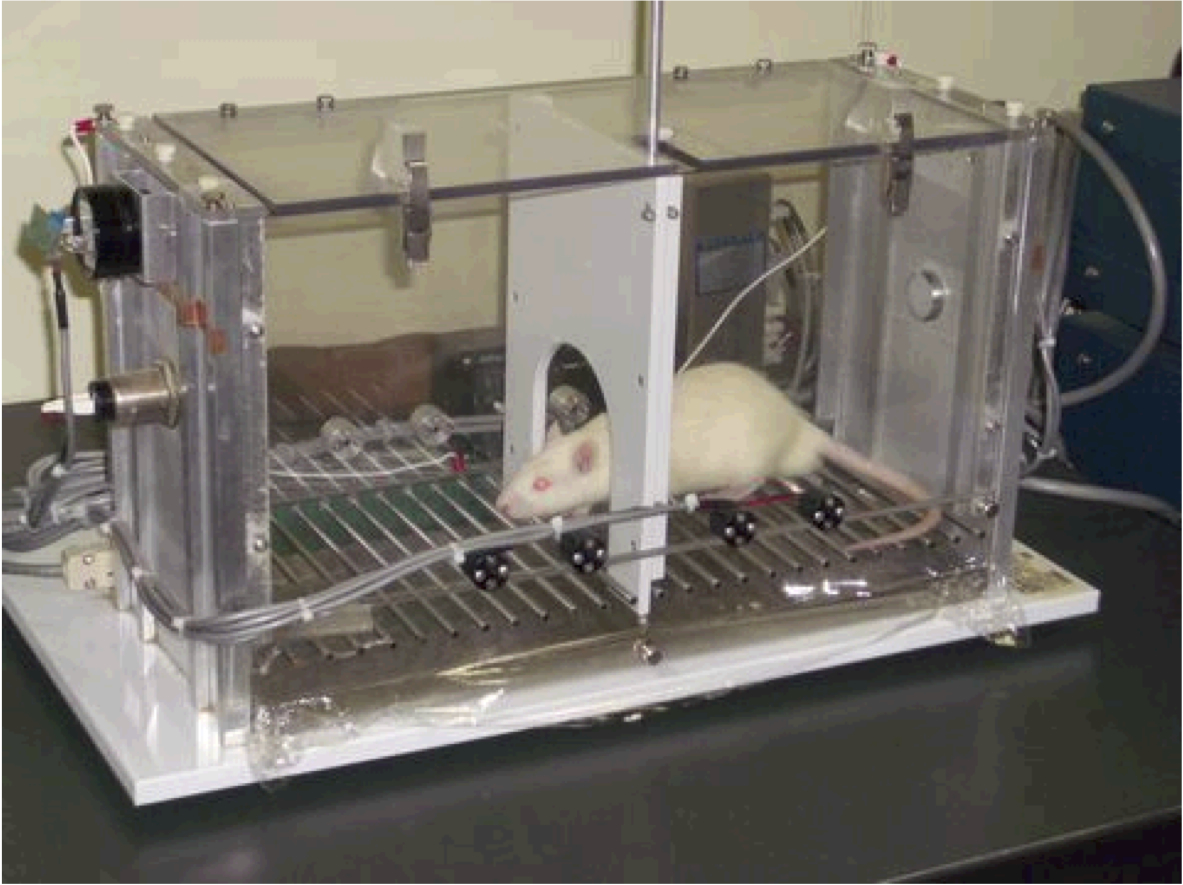Division of Behavioral Science
部門の概要: Mission
Our division is dedicated to investigating stress responses associated with special duties of Japan Self-Defense Forces (JSDF) personnel, such as disaster relief and international peacekeeping operations. Our primary mission is to conduct research that contributes to preventing and treating stress-related disorders. Our strength is our large cohort data set of JSDF personnel and our interdisciplinary research system, which incorporates epidemiology, psychiatry, molecular biology, data science, and other cross-disciplinary approaches.
In addition, as a specialized team with in-depth expertise in stress and mental health, we actively provide policy recommendations for mental health strategies within the Ministry of Defense. This constitutes our secondary mission—to serve as a think tank for mental health within the Ministry.
We believe that operating in tandem—like two wheels on a cart—these missions will improve mental health among JSDF personnel and strengthen organizational resilience.
メンバー: Staff
Division of Behavioral Science
- 教授 長峯 正典
Professor Masanori Nagamine, M.D., Ph.D. - 准教授 斉藤 拓
Associate Professor Taku Saito, M.D., Ph.D. - 助教(兼務)脇 文子
Assistant Professor Fumiko Waki, R.N., M.A.
研究の概要: Our research
Epidemiological Research on Mental Health in JSDF Personnel

Personnel engaged in humanitarian missions, such as domestic disaster response or United Nations peacekeeping operations, are exposed to significant stress. These duties often involve life-threatening risks—from secondary disasters and unstable security conditions to long working hours under extreme pressure. In addition to direct traumatic experiences, such as encountering deceased individuals, JSDF personnel are also subject to secondary trauma (compassion fatigue) through repeated exposure to the suffering of others. Our division conducts mental health surveys targeting JSDF personnel engaged in these high-stress missions.
These surveys go beyond simple screening for PTSD or depression. We aim to identify risk and protective factors to inform future policy and support systems. For example, our analysis of missions following the Great East Japan Earthquake revealed that factors such as long–term deployment, being personally affected by the disaster, and post–deployment overwork significantly impacted trauma responses. We also examine correlations with various factors, such as individual empathy traits, resilience, and the role of post-deployment leave.
We are also involved in the analysis and feedback of the annual mental health check conducted by the Ministry of Defense. Through these efforts, we strive to translate data into actionable strategies that improve the mental health of JSDF personnel.
Recently, we have begun applying a novel analytical technique called Dynamic Time Warping (DTW) to reveal the progression of psychological symptoms like PTSD. DTW, which compares similarities between two time series datasets, is a promising tool for applying complex dynamic systems theory, which has been the focus in the psychiatric field. Psychiatric symptoms change in complex ways while interacting with each other, and network analysis using DTW makes it possible to visualize the progression of symptoms and the recovery process. We aim to deepen our understanding of the pathophysiology of PTSD and other psychiatric disorders through further collection and analysis of data, with the goal of contributing to the development of individualized treatments.
Research on Stress Using Animal Models

In collaboration with the Department of Psychiatry, our division is also exploring the biological mechanisms underlying stress-related disorders, a priority issue for the Ministry of Defense.
We use various animal models to study behavioral and biochemical changes associated with PTSD and depression, aiming to clarify their pathophysiology.
In recent years, the neuroinflammation hypothesis has been attracting attention as a mechanism for the onset of psychiatric disorders, and we are actively engaged in research based on this hypothesis. In neuroinflammatory models of psychiatric disorders, brain macrophages, mainly microglia, which are immune-responsive cells in the brain, have been considered important, and we are exploring the role of these cells in brain function and the mechanisms of pathogenesis. For example, we are studying how preconditioning with low-dose lipopolysaccharide (LPS) can induce endotoxin tolerance in mice, significantly suppressing abnormal behaviors such as anxiety and depression in various animal models.
Through these biological studies, we aim not only to contribute to the development of new treatments and drug discovery but also to generate knowledge that can directly benefit the mental health of JSDF personnel.
研究業績(外部リンク):Research Achievements (External link)
- 長峯 正典(Masanori Nagamine) researchmap
- 斉藤 拓 (Taku Saito) researchmap







